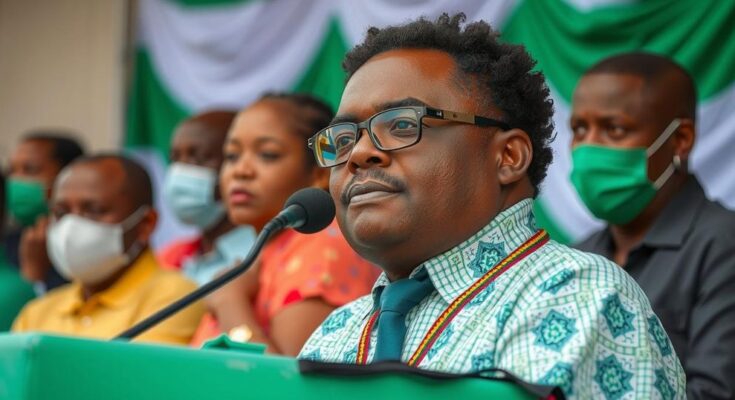Comoros held a parliamentary election on Sunday, boycotted by several opposition parties claiming the ruling government under President Azali Assoumani has become authoritarian. Approximately 330,000 out of 850,000 registered voters participated, with low turnout expected. The election follows criticisms of previous electoral processes and a turbulent political history characterized by military coups and contested results.
On Sunday, Comoros conducted a parliamentary election marked by a boycott from several opposition factions. These leaders, including those from the Juwa Party led by former President Ahmed Abdallah Sambi, accused President Azali Assoumani and his ruling Convention for the Renewal of the Comoros party of fostering an increasingly authoritarian regime and compromising the electoral integrity. Approximately 330,000 registered voters from a population of 850,000 were expected to participate, although opposition claims indicated a likely low turnout due to public disillusionment with the democratic process. In the 2020 parliamentary election, President Assoumani’s party won the majority of contested seats, a result criticized by opposition as a manipulation of the electoral system. Despite the looming presence of Tropical Cyclone Dikeledi, the electoral proceedings went forward as planned. The results are anticipated to be declared next week by the national electoral commission.
The Comoros archipelago, situated in the Indian Ocean near Madagascar, has endured a troubled political history characterized by numerous military coups since its independence from France in 1975. President Azali Assoumani has been a significant figure in this context, first usurping power in 1999 through a coup. Having served multiple terms, his administration has faced accusations of escalating repression and conducting fraudulent elections, igniting public unrest. The political climate surrounding the recent parliamentary election reflects ongoing tensions between the ruling party and opposition groups, highlighting issues related to governance and electoral legitimacy.
The parliamentary elections held in Comoros reflect the complexities of its political landscape, marked by accusations of authoritarianism and electoral malpractice from opposition parties. With a history of political turmoil, the public’s response to the election, including anticipated low voter turnout, underscores the growing disillusionment with the democratic process. Amid these challenges, the results of the election will be critical in shaping the future political climate of the archipelago, set against the backdrop of natural challenges such as Tropical Cyclone Dikeledi.
Original Source: www.seattletimes.com




